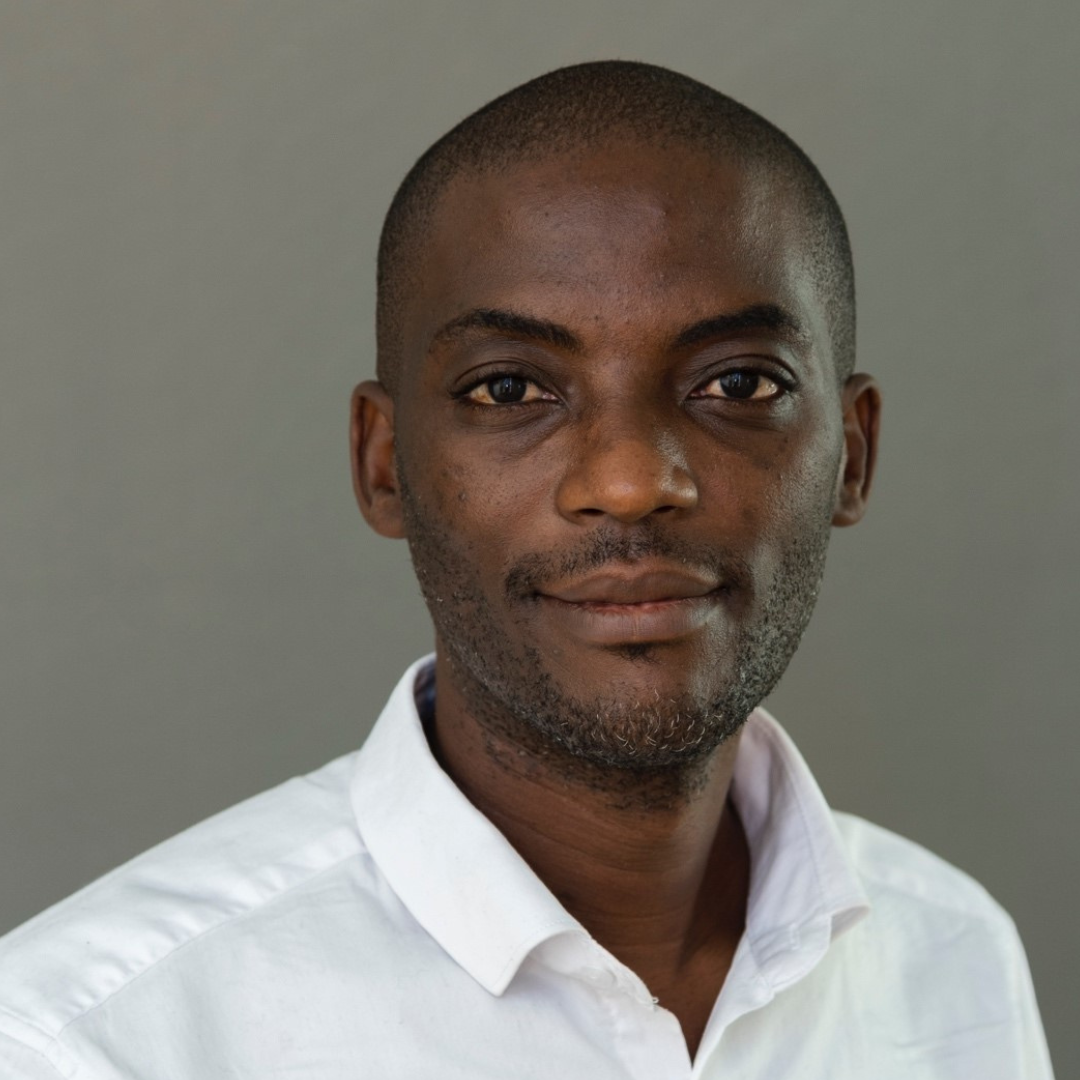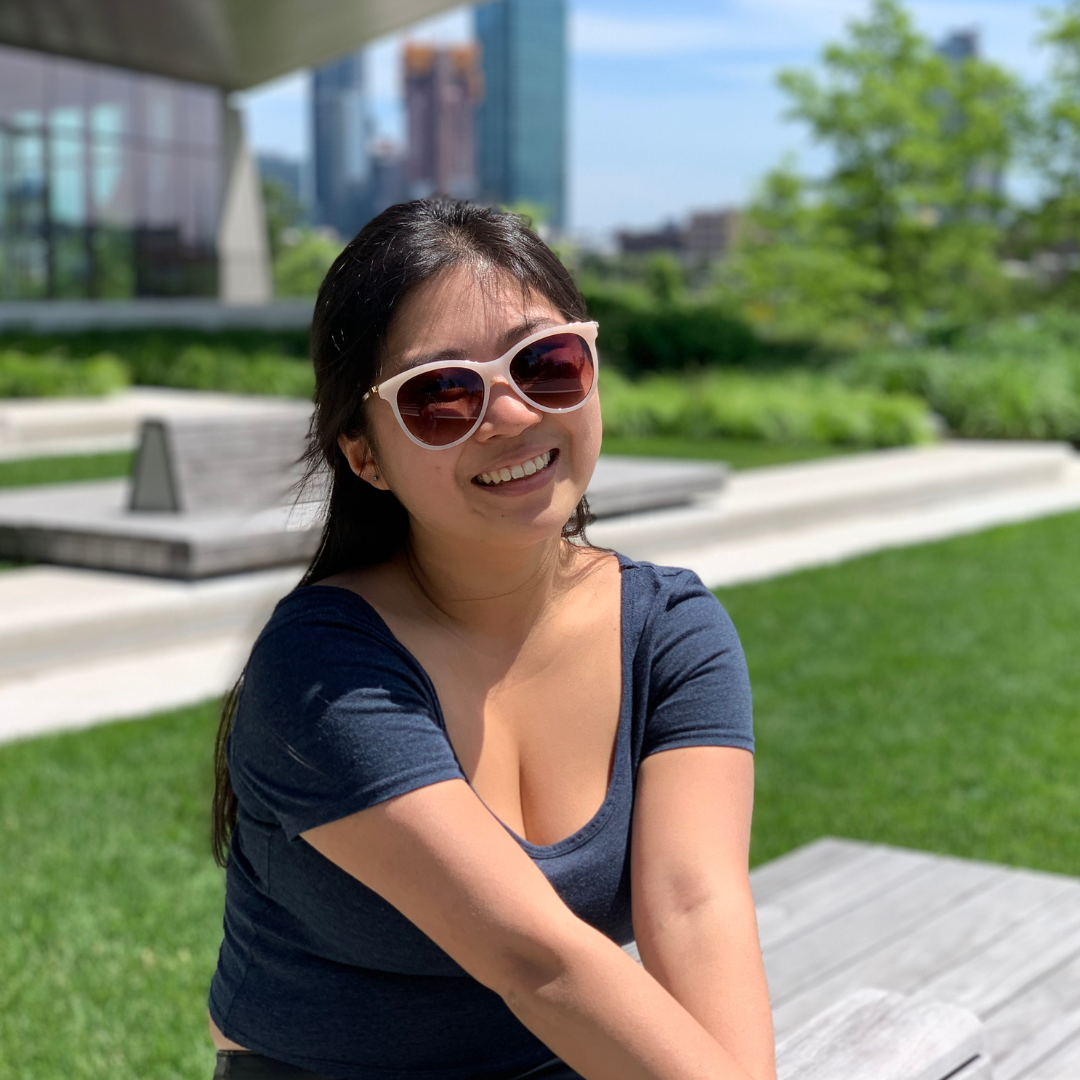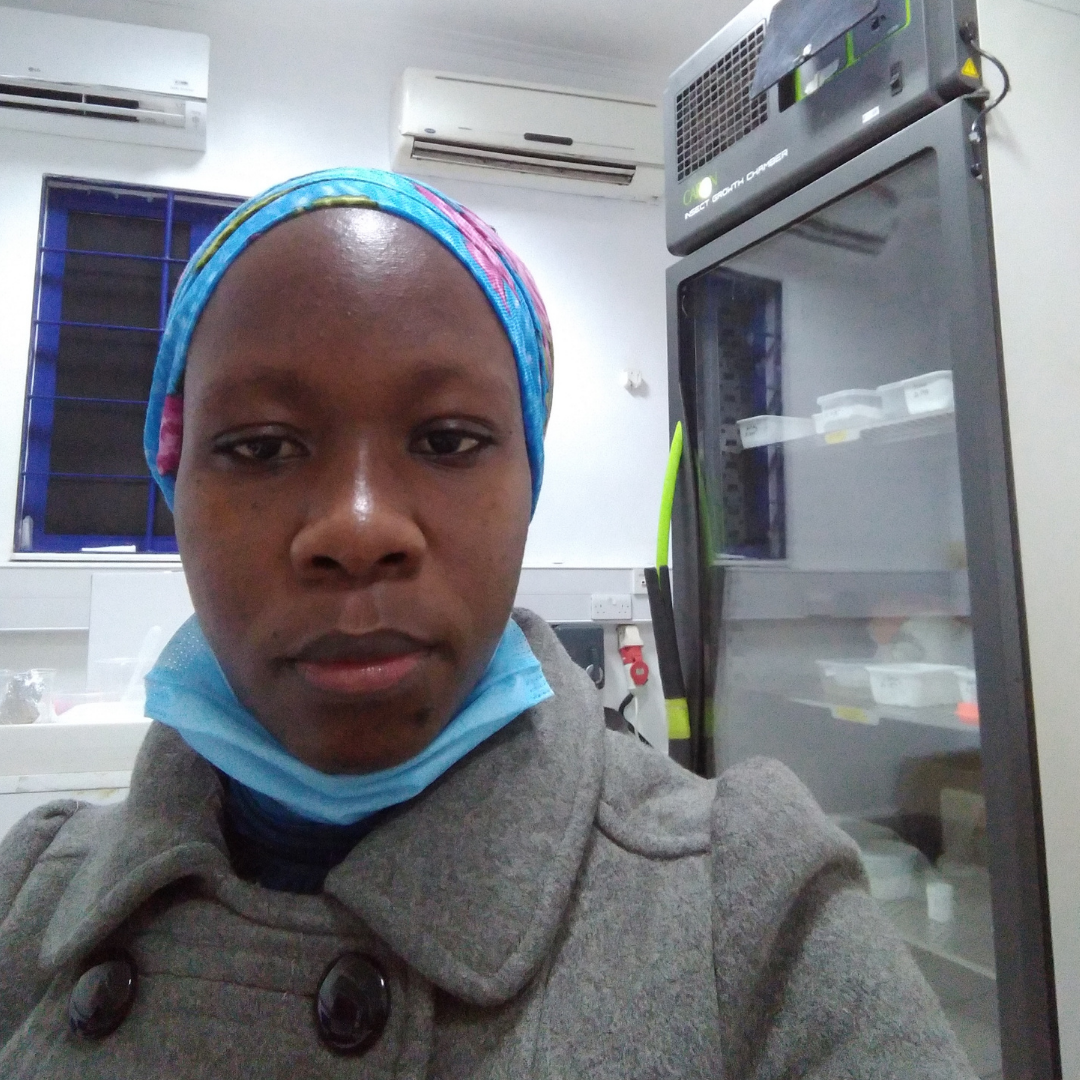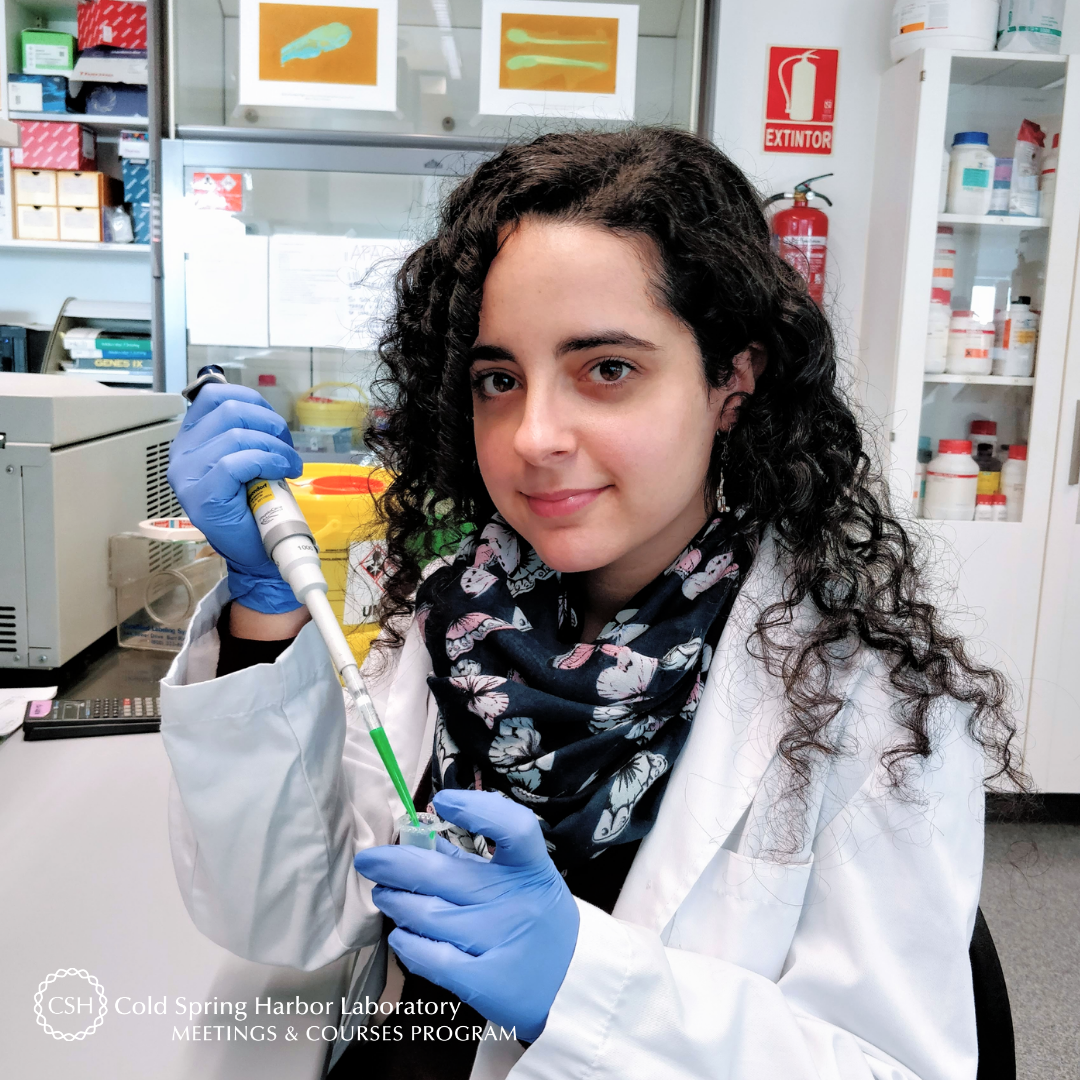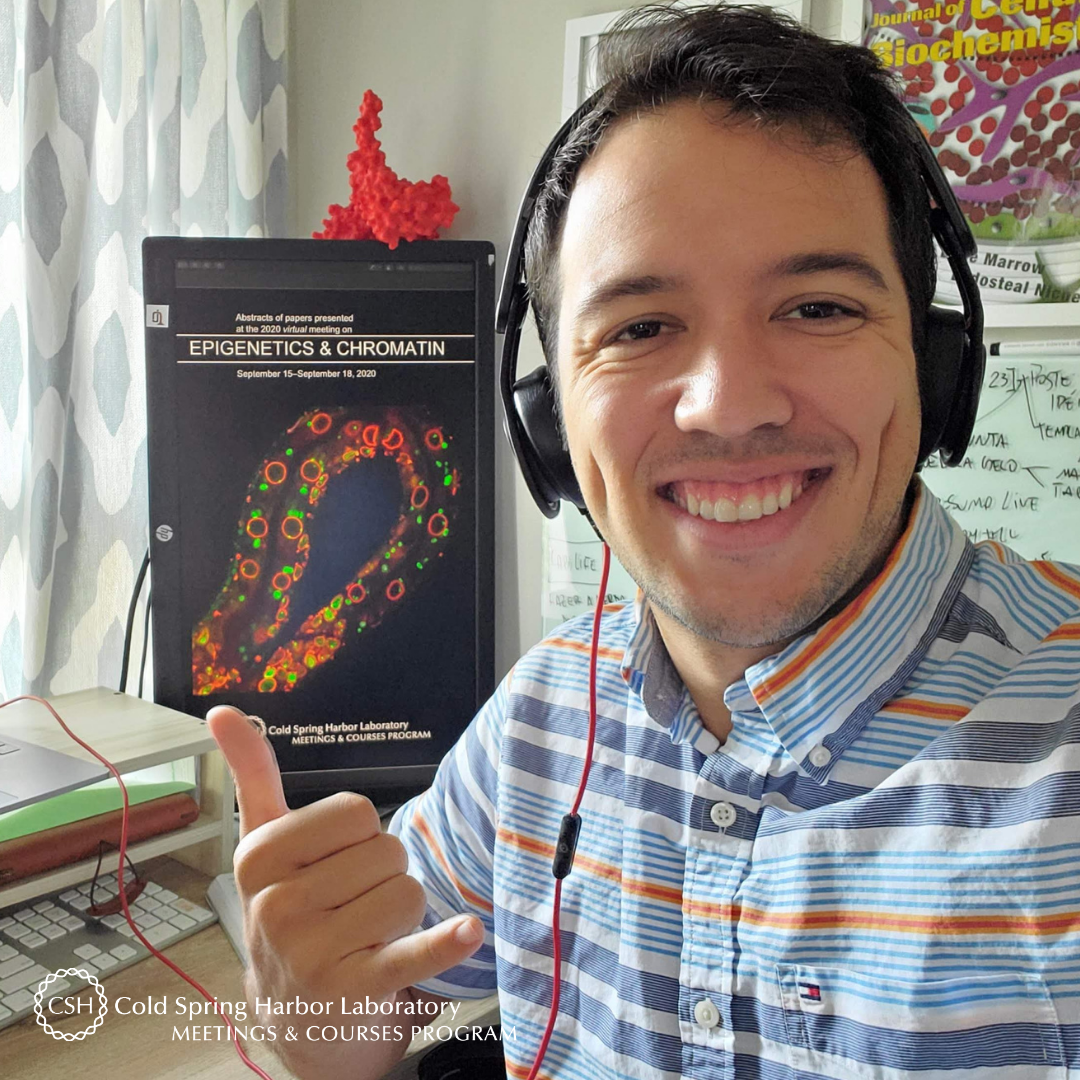Meet Merissa Xiao of the Van Andel Institute. The postdoc in Dr. Huilin Li’s lab is at Protein Homeostasis in Health & Disease. This is her first meeting at CSHL and she found it “more efficient and convenient to meet and talk with people than virtual meetings. [She] felt the passion, perseverance and critical spirit of science from those attending the meeting.”
Tell us about your research.
My research focuses on understanding the mechanism of protein degradation, disaggregation, refolding and signal transduction in Mycobacterium tuberculosis (Mtb). During host infection, Mtb encounters various stresses that result in reversible or irreversible damage to proteins, leading to protein misfolding or aggregation. Molecular machinery, such as proteasome-mediated degradation, heat shock protein (Hsp100, Hsp70 and Hsp40) mediated protein unfolding or refolding, and two component system (TCS) mediated regulation of gene expression. Given the importance of the molecular machineries in Mtb virulence in the host, these proteins may present as potential drug targets for TB chemotherapy.
How did you decide to focus on this area/project?
I have been working on the Mtb system--and have been interested in this research field--since I was a graduate student. Starting from then, I was very interested in this research field. Dr. Huilin Li and Dr. Heran Darwin’s lab have been working on the mechanistic studies of potential drug targets in Mtb for many years, which they have reported many exciting findings. Though, there are still many things that need to be addressed, considering the resistance and multi-resistance occurring in Mtb. Continuing from my previous research, I want to dig into this system on the basis of current findings.
What and/or who is the inspiration behind your scientific journey?
My long scientific journey was inspired by those who mentored me during my PhD and Postdoc studies, as well as by the research itself. The efforts of my mentors to elucidate the mechanisms of molecular machineries in Mtb and their exciting discoveries inspire me to figure out more from this system and ultimately contribute to the drug design and development of Mtb.
What impact do you hope to make through your work?
I would like my work to be significant, unique and useful. I hope the systems work well and our findings lead to more drugs being developed for the benefit people suffering from tuberculosis.
Where do you see yourself in five years?
I would like to move towards becoming an independent researcher on the basis of being fully skilled and qualified. I hope five years worth of research will allow me to have quality publications and to have a social network with top scientists in my research field.
What do you love most about being a researcher?
Doing research shares some common aspects with living: raising questions, making plans and solving the problem. The process of problem solving could be very tough but through reading and investigating papers, I learn, get inspired, and experience. Other people’s findings help us and our research, in turn, will help other people. That’s the way scientific research moves forward.
What drew you to attend this meeting?
Protein Homeostasis in Health and Disease meeting held by CSHL is famous in this research field. There are intensive talks by great scientists from all over the world. It is a great opportunity to learn new techniques from the talks and posters, and to meet with people.
What is your key takeaway from the Meeting; and how do you plan to apply it to your work?
My key takeaway is regarding scientific thinking, writing and presenting. I was motivated by the passion of the other participants, and I would definitely like to keep scientific thinking active and critical through my research career. I also received useful suggestions for my project and, such insight will definitely help me and my research going forward.
What feedback or advice would you share with someone considering to participate in this meeting?
I highly recommend people attend this meeting. The number of fantastic talks is astounding that it can sometimes be difficult to keep up. The active and passionate atmosphere greatly facilitated scientific communications. Prepare to return to your lab inspired and teeming with new techniques and knowledge.
What’s the most memorable thing that happened during the Meeting?
The most memorable thing is meeting and talking to the speakers, whose papers and books I have frequently read and online seminars I have attended. They provided with very valuable suggestions that motivated me a lot.
What do you like most about your time at CSHL?
I like the academic and historic atmosphere in CSHL. The landscape is also amazingly beautiful. All the buildings have special names (after famous scientists) and there are pictures of famous scientists on the walls of the canteen. Walking around CSHL inspired me and my work a lot.
Thank you to Merissa for being this week's featured visitor. To meet other featured researchers - and discover the wide range of science that takes part in a CSHL meeting or course - go here.
Image provided by Merissa Xiao









